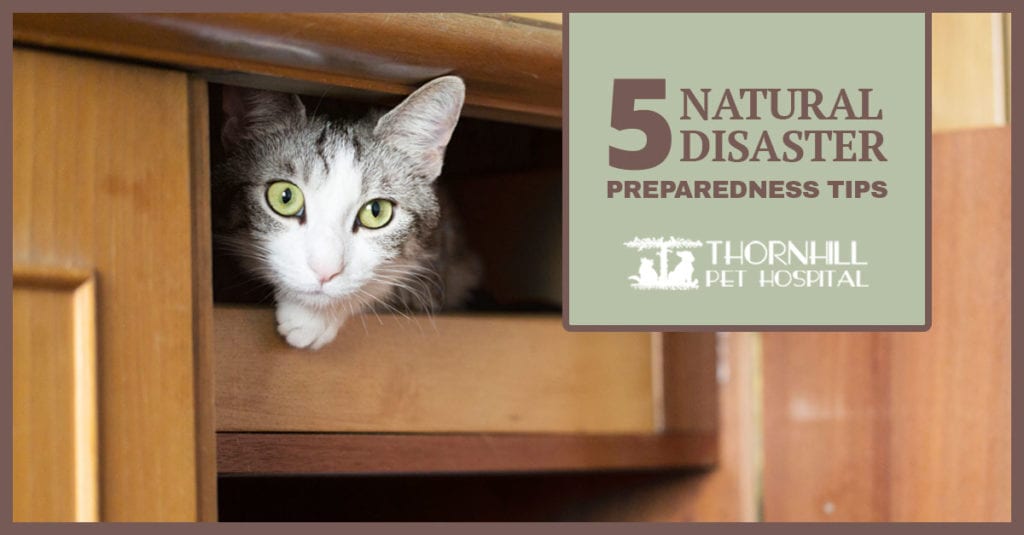
From earthquakes to tornados, California is prone to several types of natural disasters, many of which can hit without warning, so it’s important to be prepared. In fact, the chances of an earthquake occurring in the city of Oakland are much higher than the state average as well as the national average. While there are a number of preparedness tips to consider for people, there are others to consider for pets.
Thornhill Pet Hospital in Oakland has provided the following five natural disaster preparedness tips to keep the dog and cat members of your family safe. If you have any questions about these natural disaster preparedness tips or would like to schedule an appointment for your pet, please give us a call at (510) 339-2041.
- Have an Emergency Supply/Travel Kit Packed: This is critical for any type of natural disaster that can result in injury or an evacuation. In addition to a human emergency kit, you should have a kit that’s specifically for your pet. Your pet kit should include pet first-aid items, several days’ worth of pet food, bottled water, a leash and collar, bowls, litter and disposable litter trays (for cats), and a blanket. Make sure to keep all emergency kits in a safe area that can be easily accessed.
- Secure Your Furniture (for earthquakes): An earthquake can obviously do a great deal of damage to a home and furniture, which can cause injury to a pet or anyone else inside the home. If you have bookcases, cabinets, or other large vertical pieces of furniture that can fall over during a quake, it’s best to bolt them to the wall. This should include water heaters and gas appliances as well. Brace all overhead light fixtures as well.
- Make Sure Your Pet Has Sufficient Identification: Although the ID tag and collar should already be part of your emergency kit, a permanent form of identification, such as a microchip, can greatly increase the chances of a safe reunion, should your pet ever become separated from you. If your pet doesn’t yet have a microchip, schedule an appointment at Thornhill Pet Hospital, and we’ll be happy to place one.
- Be Prepared for an Evacuation: During a tornado or any other type of inclement weather, your pet should be safely indoors so that you can safely evacuate together. Make sure that your pet and emergency kit, along with any other pet essentials, are part of your evacuation plan. Perform several evacuation drills with your family and pets so that everyone can be prepared.
- Have a Tornado/Earthquake-Safe Area Planned: When time doesn’t allow for a safe evacuation, you’ll need to retreat to a pet-safe area of your home and take cover. For a tornado, this safe area can be your basement, storm cellar, or the lowest level of your home. For an earthquake, it can be under a table or against an interior wall—away from anything that can fall on you or your pet. Make sure your pet is already trained and comfortable to go to this area and that you know how to quickly and safely secure them.
